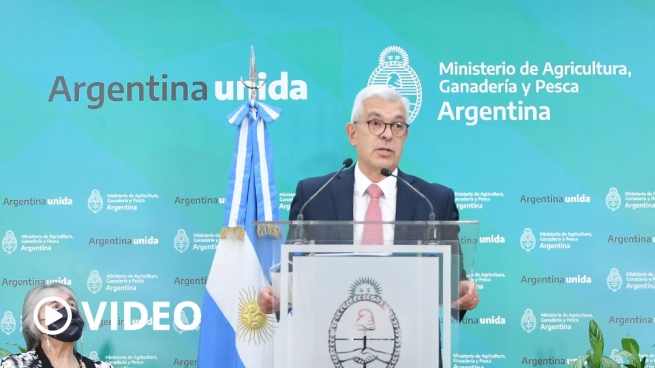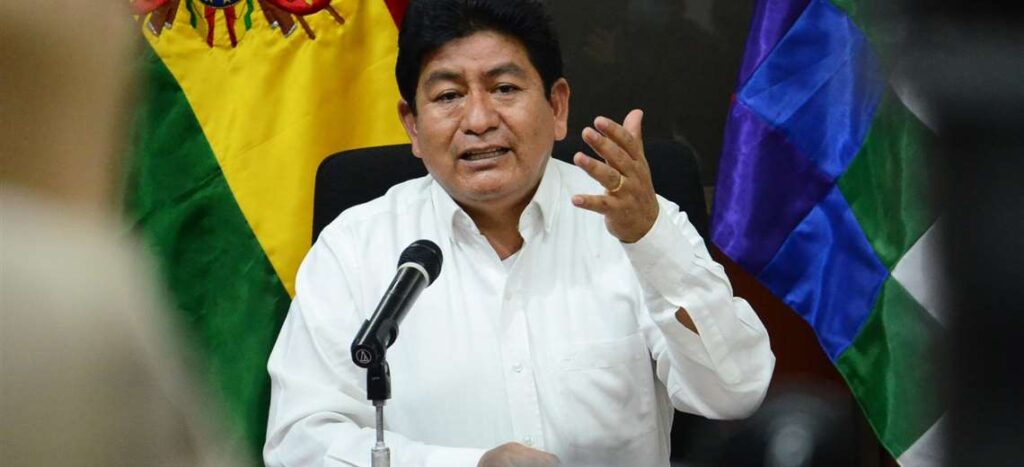Domínguez announces the suspension of the 2% differential on soybean meal and oil export duties
WATCH VIDEO
The national government made official this Saturday the creation of the Argentine Wheat Stabilizer Fund, whose purpose will be to stabilize the price of cereal at pre-war levels, at the same time that it established a new scheme of export duties for soybean by-products in order to finance it.
Through decrees 131/22 and 132/22 published in the Official Gazette The implementation of these two measures was ordered, within the framework of a series of initiatives that the Executive Branch will carry out in order to combat inflation, especially that referring to food, which in recent days has shown strong increases due to the invasion from Russia to Ukraine.
“We are working to give the goose that lays the golden eggs in this country, which is the producer, the predictability and confidence that it requires”Julian Dominguez
“The new international situation requires the taking of urgent measures that contribute to the stabilization of the internal prices of essential products for the feeding of Argentines and Argentines, as well as maintaining an adequate volume for the supply needs of the internal market,” he stressed. the rule that created said Fund.
In a press conference offered this Saturday, the Minister of Agriculture, Livestock and Fisheries, Julián Domínguez, explained that the new tool aims to “stabilize the price of wheat at pre-war values while the consequences of the increase due to the war last and decouple the Argentine price from the international ones”, whose values went from 25,000 to 35,000 pesos a ton in the local market.
In this sense, he noted that said goal seeks to “try to take care of consumers” and that the measure “does not harm Argentine producers.”
The instrumentation and administration will be borne exclusively by the Ministry of Domestic Trade, which “will set up a trust fund for this purpose,” according to what was reported.
However, its financing will be obtained from the proceeds after the removal of the differential in export duties that industrialized soybean products were taxed with respect to beans.
Thus, with the publication of decree 131/20, the Executive Power temporarily suspended said benefit for the industry, for which both soybean meal and soybean oil, the two main export products of the Argentine soybean complex, will be taxed two more points until reaching 33%equating to the rate paid by the bean.
According to Domínguez, the removal of this differential will not affect the producer since the 33% that will go on to pay for exports “already discounted the companies from the producer. The capture of this benefit and the promotion of this decree is only for companies that export these by-products.
In addition to these two measures, the head of the agricultural portfolio also announced the opening of wheat export records for the coming campaignin order that the producers and the export can take the high international price of the cereal.

Thus, the Ministry decided to enable the registration of 8 million tons more than the 2 million already authorized for said cycle.
“With this decision we intend to achieve the objective of giving producers predictability for the next wheat planting and achieving a new production record,” Domínguez said and concluded: “We are working to give the golden goose of this country, which is the producer, the predictability and confidence that it requires.”
repercussions
For its part, the Chamber of the Oil Industry and the Cereal Exporters Center (Ciara-CEC) rejected the increase in withholdings since they consider that they “deteriorate the conditions of production, work and export of the first national export complex”, and considered that “the entire soybean chain will be severely affected by punishing the payment capacity of the main buyer of soybeans in the country.”
In addition, he considered in a statement that the decision is illegal since “the Executive Power has lost the powers delegated by the National Congress and the decree must be endorsed by the Bicameral Commission”, for which “the agro-export companies are analyzing all legal actions to challenge said decree.


















